In early October, the Europe–Central Africa Network and the Just Future Alliance gathered partners from across Africa’s Great Lakes region in Brussels to confront a question that has grown increasingly urgent: how can the European Union and the Great Lakes region move towards a genuine eye-level partnership?
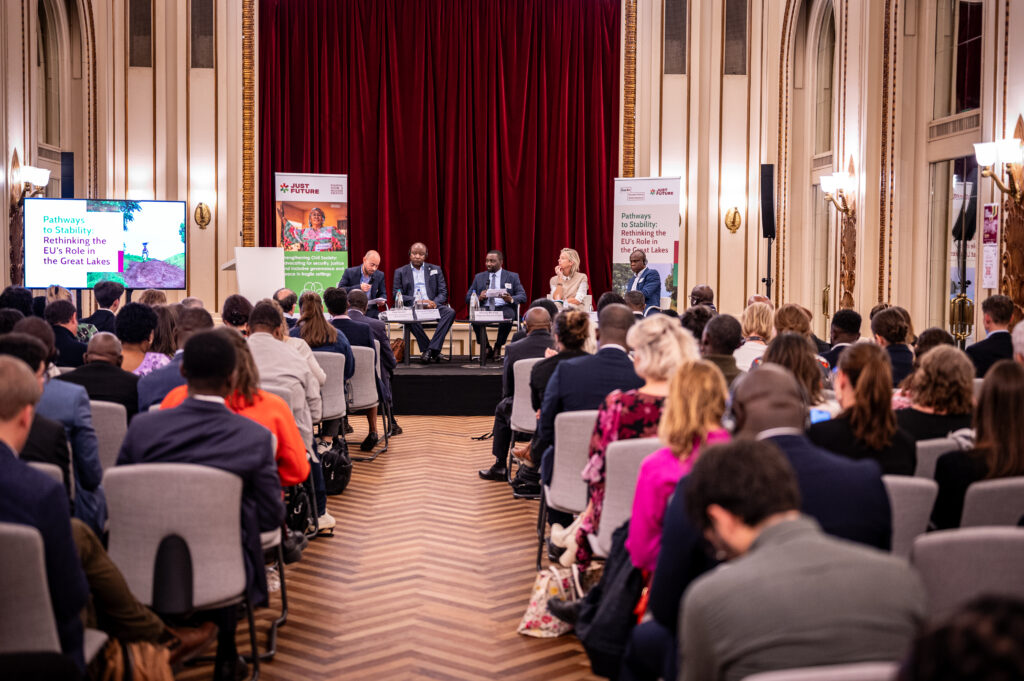
More than two years after the European Union unveiled its renewed strategy for the region, life for millions across the Democratic Republic of Congo (DRC), Rwanda, Burundi, and Uganda remains marked by fragility.
Communities continue to face insecurity, displacement and shrinking civic space. Amid this turmoil, competition over the region’s vast reserves of critical raw materials has become another source of tension, one that often overshadows the human needs at the heart of the crisis.
Exclusion and Its Costs
For Claudine Tsongo, who leads the women’s rights organisation Dynamique de Femmes Juristes in the DRC, the first step is inclusion. ‘Past crises were not managed in a participatory way,’ she says. ‘Civil society and victims were excluded, and the root causes were never addressed.’
Those causes, she argues, lie not only in politics or economics but in the absence of justice. ‘We cannot speak of stability while victims are abandoned and perpetrators act with impunity,’ Tsongo says. Accountability, she insists, is the key to rebuilding trust: ‘If the process is not inclusive and does not tackle those root causes, lasting peace will never come.’
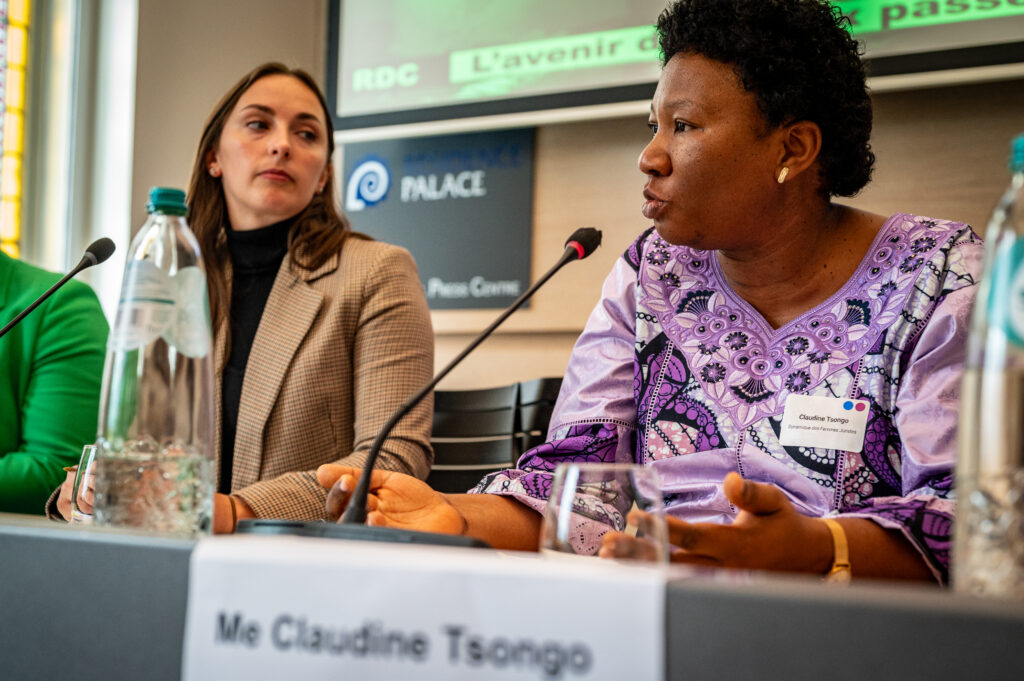
Her words echo a growing frustration among local organisations who see decisions about their future still being made in distant capitals. For Tsongo, coordination among civil society actors and with international partners must be more than rhetoric. ‘We need a shared vision,’ she says, ‘and we must move together towards it.’
The Promise and Pitfalls of Dialogue
Others stress that inclusion must translate into dialogue that is continuous, not symbolic. Emmanuel Kabengele, from the Network for Security and Justice Sector Reform, has seen both the strengths and weaknesses of peacebuilding efforts. ‘When communities and institutions sit together, the very act of talking has a calming effect,’ he says. ‘It gives hope.’
But he also warns of a recurring pattern: ‘Too often, solutions are left in the hands of those who caused the crises in the first place.’ For him, the European Union could play a vital role in changing that dynamic by ensuring that its support reaches beyond governments. ‘There’s an imbalance,’ he says. ‘Support for civil society is far smaller than that for state institutions. Yet it’s local actors who hold governments accountable to their people.’
Strengthening community voices, Kabengele argues, is not just moral, it’s strategic. ‘When communities can speak up and engage in solving their problems, they’re less likely to turn to violence.’
‘Justice, peace, human rights, and the sustainable management of natural resources are all connected. You cannot address one without the others.’
A Culture of Conversation
That idea of ‘dialogue as culture’ runs through the thinking of Vianney Bisimwa from the Centre for Civilians in Conflict. To avoid the deadlocks that have plagued past peace talks, he says, new dialogues must bring in ‘all actors around the table’, not just political or military elites.
He points to the 2002 Sun City negotiations, where civil society had a seat, as a model of how inclusion can avert stalemate. But Bisimwa’s vision goes further. ‘Dialogue must be continuous, at local, national and regional levels,’ he says. ‘When conflict arises, people must learn to respond through discussion, not weapons.’
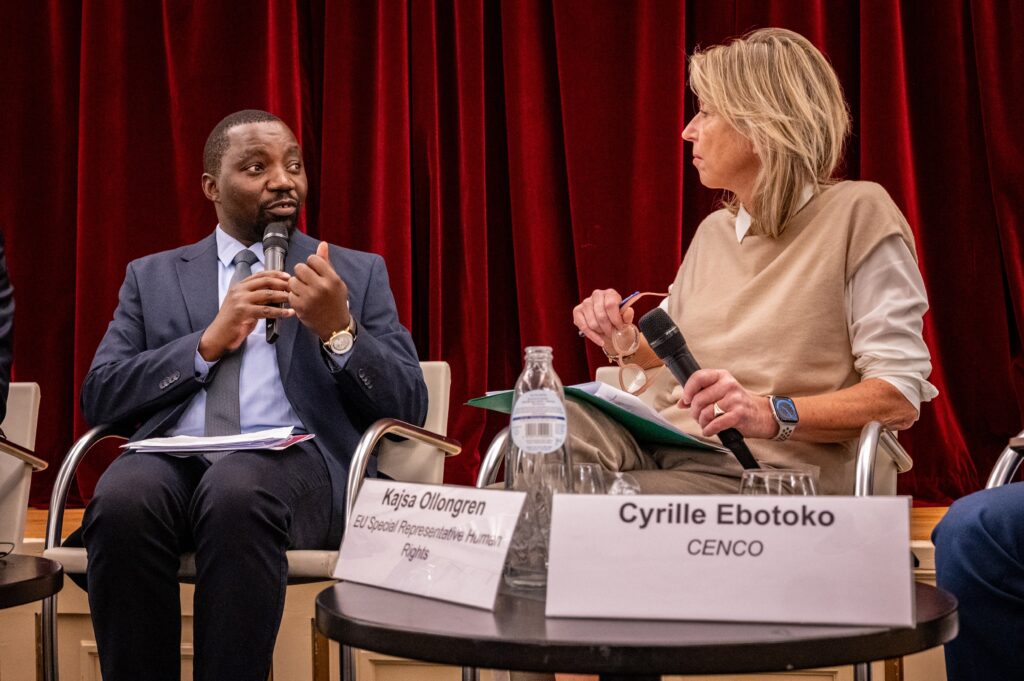
He also calls for greater coherence within Europe itself. ‘EU member states and institutions should speak with one voice,’ he says. ‘Europe’s strength lies in its values. If it prioritises those, not only economic interests, it can make a real difference.’
Interconnected Challenges
That need for coherence applies not only to Europe but to the way the international community approaches the region’s crises. Alina Garkova, of the Europe–Central Africa Network, warns against treating the Great Lakes as a collection of separate problems. ‘These crises are multidimensional,’ she says. ‘Justice, peace, human rights, and the sustainable management of natural resources are all connected. You cannot address one without the others.’
Civil society, she argues, is uniquely placed to link these dimensions. ‘The more we include a strong civil society perspective in decision-making, the more vibrant, representative and resilient our democracies and our societies become.’
‘If you want peace, you must have justice and accountability. Impunity fuels new conflicts.’
For the European Commission, the challenge is to translate such principles into policy. Lluis Navarro, Head of Sector at the Directorate-General for International Partnerships, says the EU is exploring ways to transform the region’s natural wealth from a source of conflict into an engine for development. ‘We’re looking at formalisation, traceability and transparency,’ he explains, ‘and at creating regional value chains that support local communities.’
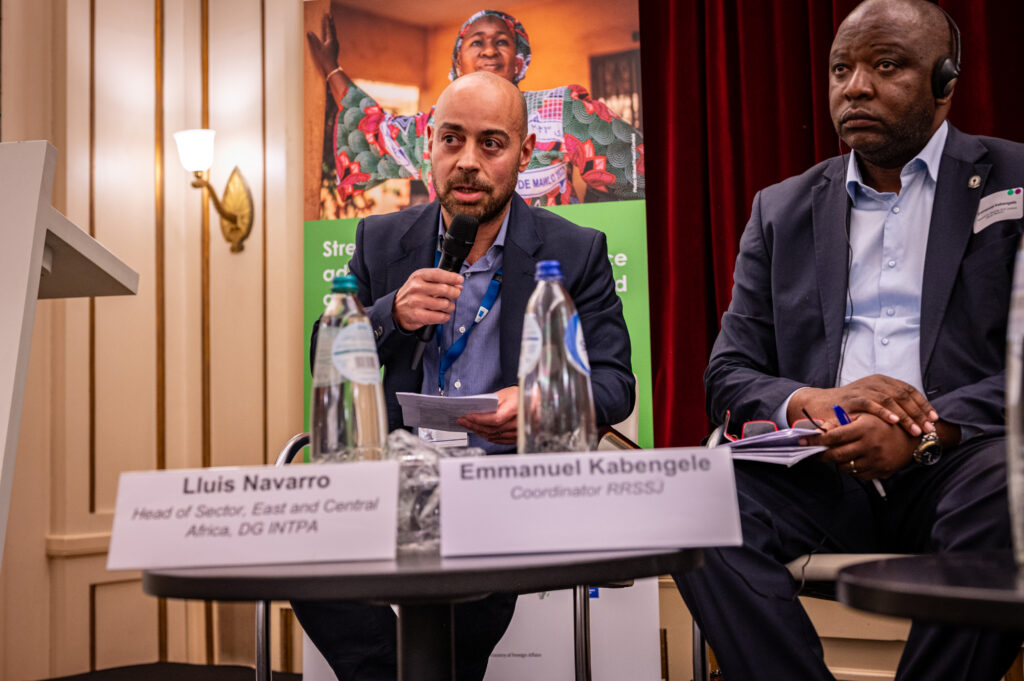
He points to shared hydropower projects and joint management of border areas as examples of how economic cooperation can build trust. ‘These initiatives show that regional integration can help shift from crisis management to a positive, forward-looking agenda.’
Justice Before Peace
For the EU’s Special Representative for Human Rights, Kajsa Ollongren, one lesson stands above all others. ‘If you want peace, you must have justice and accountability,’ she says. ‘Impunity fuels new conflicts.’
Ollongren notes that the economic interests surrounding mining in the DRC extend far beyond Africa, to China, the Middle East, the United States and Europe. Yet she warns against allowing short-term profit to eclipse human rights. ‘What matters most,’ she says, ‘is long-term sustainability, ensuring that the benefits reach the people who do the work.’
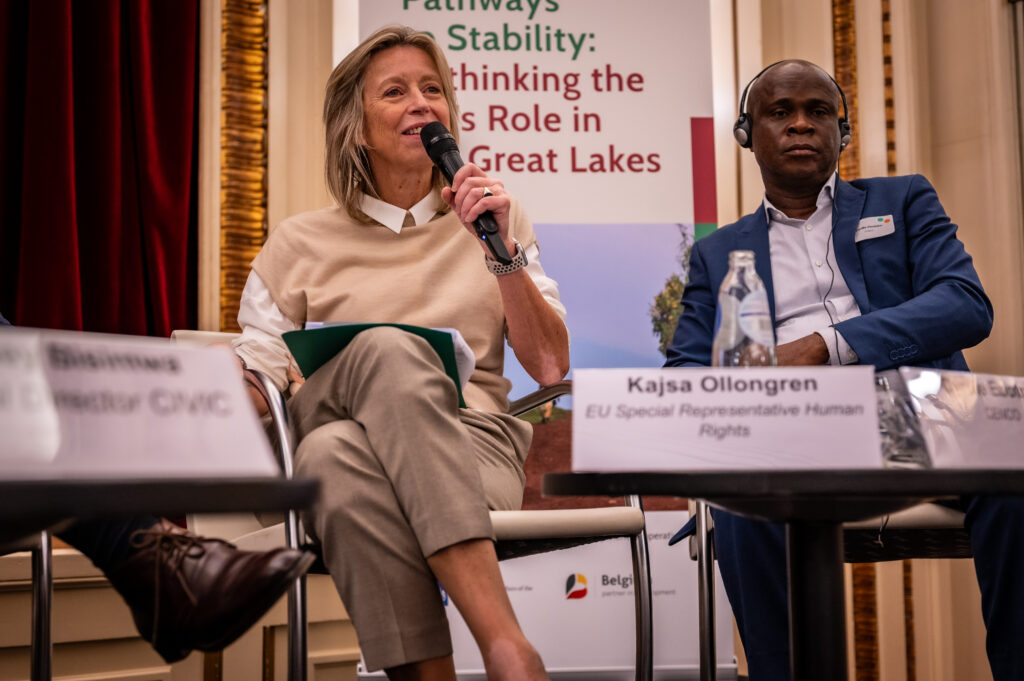
Turning Words into Action
The Brussels conference ended with a shared sense of both urgency and opportunity. The EU, participants agreed, must move from managing crises to preventing them; from issuing statements to supporting genuine, inclusive processes of dialogue and accountability.
Europe’s credibility as a partner will depend on whether it can match its promises with action, by funding civil society as seriously as it funds governments, by insisting on justice alongside stability, and by recognising that peace is not an event but a culture.